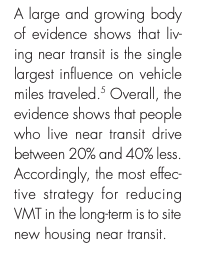
The thing about the "cars versus homes" debate is, housing and transportation aren't separate issues. They're one issue. You can't talk about them as though they had distinct solutions that can be pursued in silos.
So, if you say "affordable housing," inherent in the phrase ...
So, if you say "affordable housing," inherent in the phrase ...
... is "affordable transit" and then you have to admit if the housing is not transit-accessible, it is not actually affordable.
This is very difficult for people who've never been poor to understand: The cost of car ownership breaks people, all the time. Daily. Broke me, once.
This is very difficult for people who've never been poor to understand: The cost of car ownership breaks people, all the time. Daily. Broke me, once.
You can try to subsidize car ownership, if you like, but that comes at expense of housing, because for one thing, cars suck 25% of the money out of the economy, but more importantly, cars are most useful for mobility when housing is in a sprawl pattern, which is ...
... more expensive to build and -- critically, to maintain -- then density, so, now you've just put low-income people back into a high-cost living arrangement again.
Nah, what really happens is suburban/rural decline, poverty, and neglect.
Nah, what really happens is suburban/rural decline, poverty, and neglect.
So when an elected official who routinely opposes housing talks about subsidizing electric vehicles "to help low-income people access clean transit," correct translation is "to help keep my NIMBY conscience clean since I block transit-adjacent housing every chance I get."
Not sure who needs to hear this but I bet @KateHarrisonD4 knows somebody
• • •
Missing some Tweet in this thread? You can try to
force a refresh



